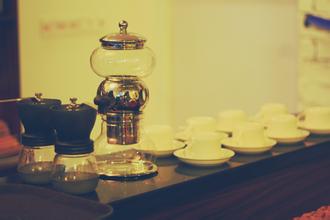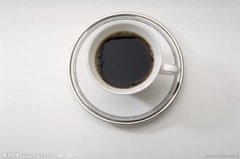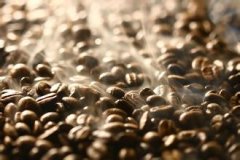Soul Coffee extraction from Coffee production

What on earth is a cup of coffee? To put it simply, when water passes through the coffee powder, it dissolves and brings out some of the soluble substances in the coffee powder. The process in which water releases soluble substances from coffee powder is called coffee extraction. About 30% of the substance in coffee powder can be extracted, which intuitively means that in 100g coffee powder, we can extract about 30g. However, not all 30% of coffee is what we need.

The ideal extraction interval is 18%-22%, which is also called the gold cup extraction interval. Whether it is made by hand or extracted under high pressure on an Espresso coffee machine, the gold cup extraction range of 18% to 22% is established.
Therefore, a good cup of coffee is to grasp an appropriate amount of extraction, extract that part of the substance we need and not too much or too little extract some substances we do not want, so as to ensure a balanced and delicious taste of the coffee. Coffee extraction is very important, it is the soul thought of coffee making!
The following factors affect the degree of coffee extraction:
1. Coffee powder particle size. The coarser the grinding degree, the smaller the total area of powder-water contact, which can delay the extraction process and reduce the extraction degree; on the contrary, the finer the grinding degree, the larger the powder-water contact area, which can greatly accelerate the extraction process and improve the extraction degree.
two。 The temperature of brewing water. The higher the brewing water temperature, the higher the energy, the higher the molecular activity, the faster the extraction process, and the higher the relative solubility of coffee soluble substances in water, which will improve the extraction degree. And vice versa. The suitable range of brewing water temperature (85-94 ℃).
3. The contact area of powder and water is also called extraction time. The longer the contact time of powder water is, the more thorough the extraction process is, the higher the extraction degree is, and vice versa.
4. The intensity of stirring. The more intense the stirring during the extraction process, or the more violent the impact between the powder and water, the higher the degree of extraction. On the contrary, the calmer and softer the extraction process is, the lower the extraction degree is.
5. Baking. The higher the baking degree, the higher the extraction ratio, which is beneficial to the improvement of the extraction degree; the shallow baking degree and the corresponding low extraction ratio are not conducive to the improvement of the extraction degree. In addition, the more fresh the coffee beans are roasted, the higher the proportion of extracts, which is beneficial to the improvement of the degree of extraction.
6. Brewing water quality. The total amount of solid particles around 150ppm is an ideal water quality, if the brewing water quality is too pure, it will improve the extraction degree, and the water quality is excellent, then the extraction degree will be reduced. If the water quality is too pure, the grinding degree can be adjusted coarsely. And vice versa.
Important Notice :
前街咖啡 FrontStreet Coffee has moved to new addredd:
FrontStreet Coffee Address: 315,Donghua East Road,GuangZhou
Tel:020 38364473
- Prev

Six steps to learn to taste and identify coffee
After proper roasting and standard extraction, the coffee looks like a drifting vapor and a dark brown liquid. But after tasting it carefully, it can be found that it has completely different characteristics. These characteristics will be affected by different producing areas, differences in planting height, types of soil, minor changes in climate, the number of Rain Water and other factors. Just like good wine.
- Next

General knowledge about coffee beans, cooked beans and growing beans.
Food has a shelf life, and coffee beans usually have a shelf life of one year, but for those who pursue high-quality coffee, it is obviously not enough to keep it. How long is the life cycle of coffee bean flavor? Is the coffee bean as fresh as possible? Friends who like red wine all know that good red wine needs to be opened an hour in advance to oxidize the red wine, which will be more beneficial.
Related
- Beginners will see the "Coffee pull flower" guide!
- What is the difference between ice blog purified milk and ordinary milk coffee?
- Why is the Philippines the largest producer of crops in Liberia?
- For coffee extraction, should the fine powder be retained?
- How does extracted espresso fill pressed powder? How much strength does it take to press the powder?
- How to make jasmine cold extract coffee? Is the jasmine + latte good?
- Will this little toy really make the coffee taste better? How does Lily Drip affect coffee extraction?
- Will the action of slapping the filter cup also affect coffee extraction?
- What's the difference between powder-to-water ratio and powder-to-liquid ratio?
- What is the Ethiopian local species? What does it have to do with Heirloom native species?

